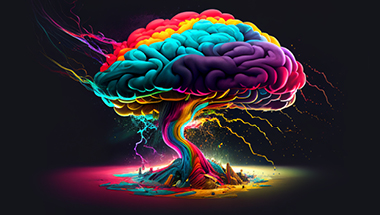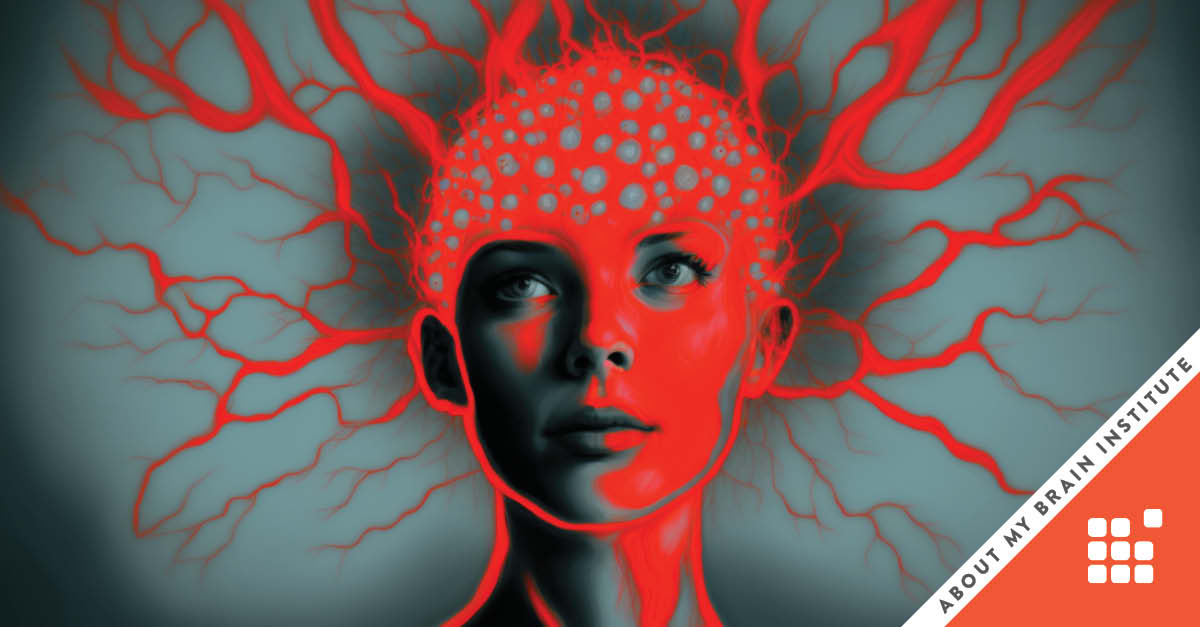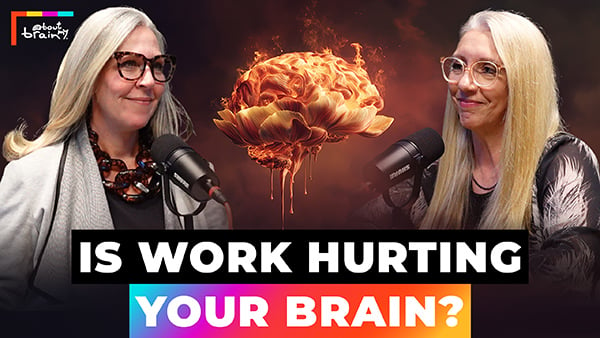Become A Brain-Friendly Coach: Using Brain Health Knowledge In Coaching
Understanding how the human brain functions is important to help improve its health. How can we change what we do not understand? To better teach others to lead, we need to educate ourselves regarding neuroscience, and then we can apply this knowledge to support those around us.
The i4 Neuroleader Certification and the Diploma of Neurobiology of Coaching, Wellbeing and Brain-Friendly Practices are aimed at anyone (not just coaches) interested in personal development, coaching skills development and the application of brain-based leadership.
This program will help you blend modern technology and the latest research on brain health with coaching methods, updating your toolbox to truly become brain-friendly. By integrating the latest advances in neuroscience and technology, you will gain access to a range of processes and resources that can enhance your coaching practice.
With the integration of technology, you can track and analyse clients’ progress more effectively, providing valuable insights into their cognitive and emotional patterns. By leveraging these insights, you can tailor your coaching approach to target specific areas for growth and development, optimising the coaching experience for each individual.
Using Technology to Peer into the Brain
It was such a pleasure to speak with Flor Pedrola an executive coach and i4 Neuroleader™ Practitioner in Madrid, Spain. A career economist, Flor has over 20 years of experience in training leaders and talent development. You will find our Brain-Friendly Channel interview with Flor below 👇
Flor is one of the Faculty members of the upcoming ‘Neurobiology of Coaching’ program. She will be sharing her personal experiences and those from her professional life. While an economist does not seem like the first choice to be interested in becoming a ‘neuroleader’, she knows that understanding the basics of our biology means better coaching and better outcomes.
Taking advantage of the knowledge emerging from technological advances when it comes to brain scans is important to offer clients a better understanding of how the brain works and how it impacts our leadership. In years past, we could not visualise what was happening in the brain in real-time, but now we have access to this technology.
Brain imaging can help us gain valuable insights into brain activity and potentially contribute to the development of better leaders. Some of the ways we can utilise this technology include:
- Understanding brain functions: Specific types of brain scans can help identify brain regions associated with various cognitive processes, emotions, decision-making and social behaviours. This knowledge can enhance our understanding of the underlying neural mechanisms contributing to effective leadership.
- Neurofeedback training: This technology can be used to provide real-time feedback on brain activity, allowing individuals to learn to self-regulate and optimise their cognitive and emotional states, which can lead to improved decision-making, emotional intelligence and interpersonal skills.
- Individualised leadership development: All of the above can help tailor leadership development programs, personalising the coaching intervention to enhance specific cognitive or emotional competencies crucial for leaders.
When Neuroscience and Coaching Blend = Neurocoaching
A better understanding of the brain equates to a better understanding of human behaviour and why we do what we do. Essentially, neuroscience explains the why, and we now have the technology that allows us to see this in action.
A coach with knowledge of neuroscience will be more effective than coaches who do not take brain functioning into account.
Life is unpredictable, and sometimes we face difficult circumstances. For some of these situations, we can buckle down and solve the problem. However, some problems are too big for one person or group to solve. Unfamiliar circumstances mean we may need to branch out and look for information, research and alternative ideas.
Flor shared a story about her son and her own journey for information to help him. She spoke with experts worldwide to progress her knowledge regarding neurobiology and the brain. During this discovery, she realised the information would carry over to her coaching and mentoring career.
Flor said the key is to help others advance in more balanced and sustainable ways. How do clients respond to this education? Most clients become fascinated and amazed at their untapped potential. These are the moments when all the ingredients seem to click, and people can see true growth.
Everything we do, every thought we’ve ever had, is produced by the human brain. But exactly how it operates remains one of the biggest unsolved mysteries, and it seems the more we probe its secrets, the more surprises we find.
Neil deGrasse Tyson
A Brief Lesson on Human Anthropology
Why do things suddenly click? We’ve all had those ‘a-ha’ moments, but can we use science to increase the frequency of these moments? According to Flor, there are four dimensions to a human within anthropology.
The four dimensions are often categorised as biological, psychological, social, and cultural or spiritual.
- Biological dimension: This dimension focuses on the physical aspects of human beings. It includes the study of human evolution, genetics, physiology, anatomy and other biological factors that influence human behaviour and characteristics.
- Psychological dimension: The psychological dimension pertains to the study of human cognition, emotions, personality and mental processes. It explores how individuals perceive, think, feel and behave and how these factors shape human experiences and interactions.
- Social dimension: The social dimension examines how individuals interact and form relationships with others within a society. It encompasses the study of social structures, institutions, norms, roles and the influence of social factors on human behaviour and identity.
- Spiritual dimension: This includes studying human culture, beliefs, values and practices. It includes the examination of cultural diversity, rituals, symbols, religion, worldview and the role of spirituality in shaping human experiences and meaning-making.
These dimensions are interconnected and together provide a holistic understanding of human beings. They recognise that humans are complex beings influenced by all of these factors. Anthropology seeks to study and integrate these dimensions to gain insights into the diversity and complexity of human existence.
When parts of this system are changed, the brain must be modified to return to balance. Flor speaks about how she was only utilising three dimensions when coaching initially, psychological (helping to change personal beliefs), social (helping to improve communication styles) and spiritual (working on personal goals or a vision for the future). However, she had the feeling that something was missing.
Neurobiology was the missing piece. Looking at the whole human being, we can help achieve a sustainable balance and a higher level. Examining humans from an anthropological perspective helps us get to this higher level.
An Example of Neurobiology in Action
Flor offered a personal story about a former client who was considered a highly regarded leader. However, about half of his employees were on other continents, so people were spread out around the world. Many of these relationships were forced to be online.
Her client decided this would not work long term. He then changed his sleep hours to accommodate the needs of his employees and clients. Unfortunately, things did not turn out how he wanted. The adjusted sleep hours affected him negatively, and his sleep impacted the other dimensions of his leadership.
Even though her client did not realise that sleep was becoming a problem, months later, the negative results were noticeable. Flor coached him and used neuroscience to teach him how to create a new vision, management system and improved self-talk so he could rebalance his leadership methods and improve his condition.
Sleep is only one aspect of our whole self, but sleep is essential. Leaders who get the right amount of quality sleep experience enhanced cognitive performance, emotional regulation, productivity, leadership presence and overall health. As Flor’s client found, prioritising sleep helps leaders operate at their best and effectively lead their teams towards success.
A Six-Month Journey of Discovery on the Road to Brain-Friendly Leadership
Incorporating the biological dimension brings the total package together. Coaches who embark on this six-month journey will learn many aspects of brain-friendly leadership. They will hopefully become empowered to feel and know how to use this information to help others.
Understanding ourselves is necessary before we can coach others. If we are uncertain about applying neurobiology to our lives, how can we lead others to implement it in their lives?
There is so much to learn about the brain, and the Neurobiology of Coaching, Wellbeing & Brain-Friendly Practices program will reiterate how much of an impact the brain has on every aspect of our lives. Coaches will know they are at their best as coaches.
Neurocoaching gives us the tools to be more effective, improve performance and inspire others to become better leaders.
Advances in neuroscience will continue, and we must all upgrade our skills with this new knowledge. I am very excited to introduce Flor Pedrola to you all, and I know that you will find her thoughts and insights to be supportive as you begin this journey, not only for your clients but for yourself.
- i4 Neuroleader (353)
- Leadership & Culture (336)
- Brain Health & Wellbeing (206)
- Innovation (97)
- Performance (85)
- Our News (79)
- Collaboration (68)
- Agility (53)
- Practitioner Stories (44)
- In The Press (36)
- Make Me A Leader (33)
- Balance (31)
- Integration (30)
- Imagination (29)
- Awareness (23)
- Brain-Friendly Channel (22)
- Brain-Friendly Leadership (22)
- Communication (22)
- Curiosity (21)
- Inspiration (19)
- Intuition (19)
- Attitude (17)
- Courage (16)
- Adaptability (14)
- Case Studies (14)
- Drive (14)
- Generosity (13)
- Ethics (9)
- Mental Readiness (9)
- Influence (8)
- Retreat (8)
- Brain-Friendly Leadership (1)
- Oracle Cards (1)
- 1 November 2025 (2)
- 1 September 2025 (3)
- 1 August 2025 (5)
- 1 July 2025 (5)
- 1 June 2025 (2)
- 1 April 2025 (1)
- 1 March 2025 (8)
- 1 February 2025 (3)
- 1 September 2024 (4)
- 1 July 2024 (2)
- 1 June 2024 (6)
- 1 May 2024 (2)
- 1 April 2024 (3)
- 1 March 2024 (1)
- 1 November 2023 (1)
- 1 August 2023 (1)
- 1 July 2023 (2)
- 1 June 2023 (2)
- 1 May 2023 (4)
- 1 April 2023 (2)
- 1 March 2023 (7)
- 1 February 2023 (4)
- 1 January 2023 (1)
- 1 September 2022 (1)
- 1 May 2022 (3)
- 1 April 2022 (1)
- 1 March 2022 (5)
- 1 February 2022 (4)
- 1 January 2022 (4)
- 1 December 2021 (2)
- 1 November 2021 (4)
- 1 October 2021 (3)
- 1 September 2021 (6)
- 1 August 2021 (1)
- 1 April 2021 (1)
- 1 December 2020 (2)
- 1 November 2020 (1)
- 1 September 2020 (1)
- 1 August 2020 (1)
- 1 July 2020 (3)
- 1 June 2020 (4)
- 1 May 2020 (3)
- 1 April 2020 (4)
- 1 March 2020 (6)
- 1 February 2020 (4)
- 1 January 2020 (2)
- 1 December 2019 (3)
- 1 November 2019 (3)
- 1 October 2019 (5)
- 1 September 2019 (4)
- 1 August 2019 (4)
- 1 July 2019 (4)
- 1 June 2019 (5)
- 1 May 2019 (9)
- 1 April 2019 (9)
- 1 March 2019 (8)
- 1 February 2019 (7)
- 1 January 2019 (8)
- 1 December 2018 (5)
- 1 November 2018 (10)
- 1 October 2018 (16)
- 1 September 2018 (9)
- 1 August 2018 (10)
- 1 July 2018 (9)
- 1 June 2018 (8)
- 1 May 2018 (9)
- 1 April 2018 (9)
- 1 March 2018 (9)
- 1 February 2018 (8)
- 1 January 2018 (8)
- 1 December 2017 (6)
- 1 November 2017 (9)
- 1 October 2017 (9)
- 1 September 2017 (8)
- 1 August 2017 (10)
- 1 July 2017 (8)
- 1 June 2017 (8)
- 1 May 2017 (9)
- 1 April 2017 (8)
- 1 March 2017 (6)
- 1 January 2017 (3)
- 1 December 2016 (4)
- 1 November 2016 (5)
- 1 October 2016 (4)
- 1 September 2016 (2)
- 1 August 2016 (4)
- 1 July 2016 (4)
- 1 June 2016 (2)
- 1 May 2016 (3)
- 1 April 2016 (3)
- 1 March 2016 (7)
- 1 February 2016 (2)
- 1 January 2016 (5)
- 1 December 2015 (2)
- 1 November 2015 (2)
- 1 October 2015 (4)
- 1 September 2015 (2)
- 1 August 2015 (2)
- 1 July 2015 (1)
- 1 June 2015 (3)
- 1 May 2015 (4)
- 1 April 2015 (5)
- 1 March 2015 (3)
- 1 February 2015 (3)
- 1 January 2015 (3)
- 1 December 2014 (3)
- 1 November 2014 (3)
- 1 October 2014 (3)
- 1 September 2014 (5)
- 1 August 2014 (4)
- 1 July 2014 (5)
- 1 June 2014 (3)
- 1 May 2014 (1)
- 1 March 2014 (1)
- 1 December 2013 (2)
- 1 November 2013 (1)
- 1 July 2013 (1)
- 1 June 2013 (1)
- 1 May 2013 (3)
- 1 April 2013 (1)
- 1 March 2013 (2)
- 1 February 2013 (1)
- 1 January 2013 (2)
- 1 November 2012 (1)
- 1 October 2012 (1)
- 1 September 2012 (1)
- 1 August 2012 (2)
- 1 July 2012 (1)
- 1 June 2012 (1)
- 1 May 2012 (2)
- 1 April 2012 (1)
- 1 February 2012 (1)
- 1 January 2012 (1)
- 1 November 2011 (1)
- 1 October 2011 (3)
- 1 September 2011 (2)
- 1 July 2011 (1)
- 1 June 2011 (1)
- 1 May 2011 (1)
- 1 April 2011 (1)
- 1 March 2011 (1)
- 1 February 2011 (2)
- 1 January 2011 (4)
- 1 December 2010 (4)
- 1 November 2010 (3)
- 1 October 2010 (5)
- 1 September 2010 (4)
- 1 August 2010 (4)
- 1 July 2010 (3)
- 1 June 2010 (4)
- 1 May 2010 (7)
- 1 April 2010 (5)
Subscribe by email
You May Also Like
These Related Stories

Become A ‘Brain-Friendly Coach’ And Change Your Outlook On Life

The Neurobiology of Performance: Applying Brain-Friendly Practices in Coaching & Wellbeing Training




No Comments Yet
Let us know what you think